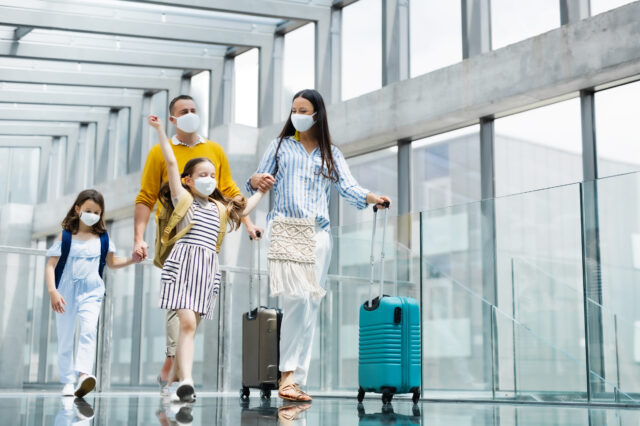How to Stay Healthy this Holiday Season
Before you plan trips and gatherings this holiday season, here are a few key ways to continue to stay healthy and prevent infections.

The holiday season is upon us, and after safely distancing from family and friends over the past year and a half, many of us are ready to get back to celebrating, showing thanks and creating new memories with our friends and family. However, the COVID-19 pandemic is not over, flu season is in full force, and other illnesses are always a risk.
The good news? Both the influenza and COVID-19 vaccines are widely available, accessible and effective at lowering risk of hospitalization and even transmission. Vaccines are game changers and make it much safer for you, your family and friends to be together in person once again.
Before you plan trips and gatherings, here are a few key ways to continue to stay healthy and prevent infections.
Get vaccinated
The COVID-19 vaccine is the most effective method for reducing the risk of severe infection and hospitalization. It is now available to those 5 years and older. Although children are less likely than adults to suffer from symptomatic disease, they can still be infected with COVID-19 and some may even develop severe illness requiring hospitalization. According to the American Academy of Pediatrics, state-level reports show that as of Nov. 11, 2021, more than 6.6 million children have tested positive for COVID-19 and more than 100,000 of those children were hospitalized.
Additionally, someone who is infected with COVID-19 might not develop symptoms and may unknowingly and unintentionally spread COVID-19 to those around them, including the following populations:
- Those who cannot be vaccinated, like children under 5 years old or those with a severe allergy to an ingredient in the vaccine.
- Those who remain unvaccinated. This includes people who developed natural immunity from contracting COVID-19 or passive immunity from a monoclonal antibody, since the protective immunity from both of those reduces significantly after three months.
- Those who have been vaccinated, but have a compromised immune system limiting their protection.
For those who are eligible, UF Health Jacksonville and the Centers for Disease Control and Prevention strongly encourage all to get vaccinated for COVID-19 as soon as possible.
Continue to follow health protocols
In addition to being fully vaccinated, there are other ways to protect yourself and loved ones, especially when visiting areas of high infection rate and those who are immunocompromised or unvaccinated.
- Wear a mask when appropriate. Regardless of vaccination status, you should still wear a face covering in high-traffic areas or locations with a high infection rate, and when around individuals who are unvaccinated and/or immunocompromised. Unvaccinated individuals who are older than 2 years old should wear well-fitting masks over their nose and mouth when gathering with others.
- Wash your hands thoroughly. Wash your hands with soap and water for at least 20 seconds when you can. If soap and water are not available, choose a hand sanitizer with at least 60% alcohol to clean your hands.
- Stay home if you are sick. No matter your illness, stay home and postpone your travel and visits until you are well.
- Get your flu vaccination. If you aren’t vaccinated for influenza yet, get that vaccine as soon as possible. It is safe to get both the COVID-19 vaccine and the flu vaccine at the same time.
- Avoid traveling outside of your city if you’re unvaccinated. Connect with family and friends virtually and postpone your in-person visit until you are fully vaccinated. Fully vaccinated means two weeks has gone by after your second dose in the two-dose series of the Pfizer or Moderna vaccine, or two weeks after your single dose of the Johnson & Johnson vaccine.
Find more ways to celebrate safely on the CDC website. I wish you a happy holidays. Stay safe and be well!